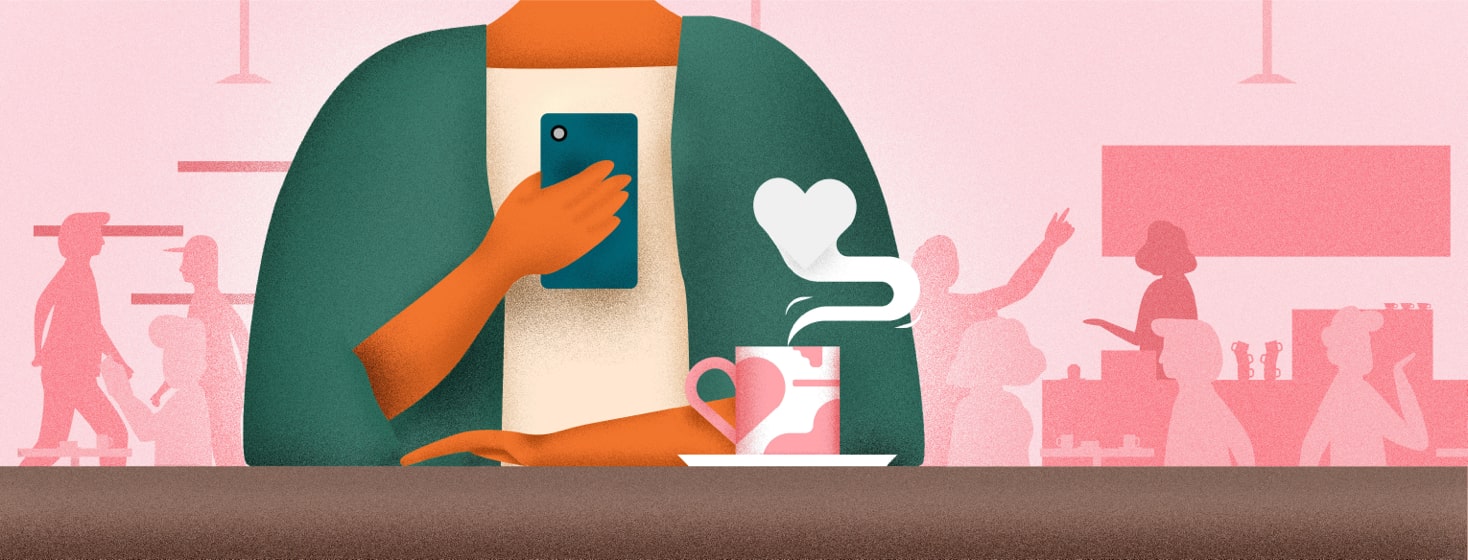Dating While Young and Disabled
When I think of dating in my 20s, it looks different than I expected in a lot of ways. So much of dating is debriefing friends and overthinking signals, these with nuances that would have baffled me as a young teen.
But it isn’t just different because most meet-cutes are confined to apps, it is also because of my disability
Although I know how to live and manage my axial spondyloarthritis, it can still feel daunting. If it’s daunting to me, it is certainly daunting to non-disabled potential partners.
From the girl who ghosted me after learning I was blind to the guy who was shocked to learn my cane was more than an unconventional fashion statement, dating has included a myriad of misunderstandings.
It makes me understand why I was once so desperate to make a weak relationship solid.
When I first started experiencing chronic pain, I was in a committed long distance relationship. I was only 18, which made my love idealized and my illness tragic in the eyes of those around me.
As my illness and symptom severity progressed, I became desperate to make my relationship work on a long-term scale. Because as any new patient does, I researched. I fell down the rabbit hole not only about my condition, but about how pain tends to affect us around and throughout our lives.
Partner abandonment related to my illness scared me so much. It scared me enough that even when our relationship ended for unrelated reasons, nothing could convince me it was truly unrelated.
I took a break from dating after that. There was a lot of growth and acceptance to do around my disability status before I could approach the dating game again.
I had to work to understand that no matter what my disability status and day to day looked like, I deserve the same love and affection I did before. Someone accepting of my disability status wasn’t a plus, it was a must. Adjusting to this being one of my deal breakers in dating has made me approach dating differently as well.
Even though it pegged me as a “picky” dater, I swallowed my hesitations around that label and stuck with my guidelines.
Featured Forum
View all responsesThis potential partner had to like animals, more specifically cats. They had to be kind, and genuine in how they carried it on their sleeve. Had to have ambition as well as respect for my own.
They had to understand that while my disability wasn’t all of me, it was certainly a part of me
Disability scares people, so does illness, some equating both the antitheses of youth. I do not have time to comfort someone about my chronic pain within my own relationship. My disability is not the elephant in the room, and I refuse to treat it as such.
These concepts can be new to some. Fortunately, something I’m learning as I have eased back into dating is that people are willing to try on new ideas more often than we think.
The more work I did on myself and my self perception, the more sure I was about my own dealbreakers. I knew that those unwilling to learn aren’t people I should commit to. It cemented to me that I am and will be okay on my own.
Because I was raised in a matriarchal family system, with women on their own and assured of their own power. I am more than capable of being an independent woman. My experience with illness and disability didn’t negate that, if anything it sent my family’s message home.
We do not have to, nor should we, settle for less in our relationships because of how small our dating pools seem. I know what it is to feel fear in my chest at the idea of being alone. Rather than settling for a bare minimum, I became acquainted with the person who isn’t going anywhere. A partner is now a plus, not a must.
So I have sat at coffee shops with new hopes, and known who I am and what I have to offer. Anxiety still lingers, butterflies fill my chest, but I am going to be alright whether we set a second date or not.

Join the conversation